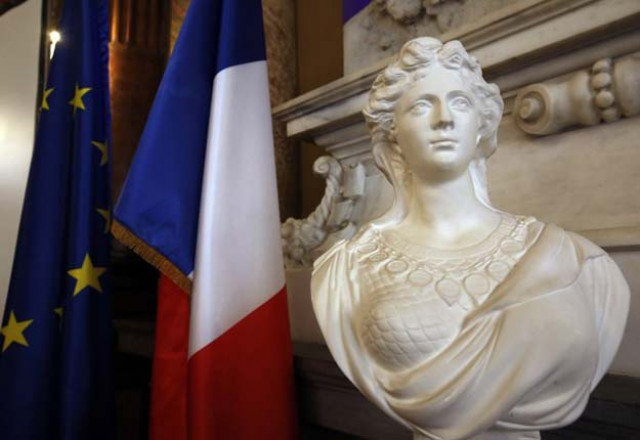Naked breasts represent France better than headscarf, suggests French PM
French premier's words draw criticism from politicians and derision from historians and feminist

Hailing the bare breasts of Marianne, a national symbol of the French Republic, the premier gave a speech in support of the mayors who had earlier banned the burkini on some beaches. “Marianne has a naked breast because she is feeding the people! She is not veiled, because she is free! That is the republic!” he said at a government rally.
This cartoon perfectly sums up the burkini ban
However, his words drew criticism from politicians and derision from historians and feminists. Mathilde Larrere, a historian of the French revolution and French citizenship, tweeted, “Marianne has a naked breast because it’s an allegory, you cretin!” In a long series of tweets, she explained that images of Marianne with a naked breast harked back to classical allusions.
https://twitter.com/LarrereMathilde/status/770353566099894272
Other historians also questioned Valls’ knowledge of French republican history. The historian Nicolas Lebourg told French newspaper Libération that Valls appeared to have confused Marianne with the earlier 1830 Delacroix painting of Liberty Leading the People, where the figure has her breasts uncovered.
Others pointed out that Marianne typically has her head covered with a Phrygian cap, a soft, felt hat that symbolised freedom and the revolution. She has been portrayed in different ways, either with breasts uncovered or fully covered.
French police make woman resting on Nice beach remove 'burkini'
Further, the former Green party minister Cécile Duflot said Valls’ praise of Marianne’s bare breasts gave an indication of the lamentable view of women held by some male French politicians. The figure of Marianne officially became a symbol of the French Republic in 1848, after the fall of the monarchy. Her image is still featured throughout the French public service and on official documents, as well as on stamps. Statues of Marianne adorn town halls.
The UN human rights office welcomed a decision last week by France’s highest administrative court to suspend one of the burkini bans, ruling it ‘manifestly illegal’. However, most of the mayors who have banned burkinis are still refusing to withdraw the restrictions and four face further legal action from rights groups this week.
Meanwhile, the French PM also faced criticism on Twitter with many questioning if he was trying to outdo Donald Trump:
The perfect response of a French historian to PM Valls (who must be trying to outdo Trump) #burkini #marianne https://t.co/dIuSifIikz
— Peter Gumbel (@petergumbel) August 30, 2016
https://twitter.com/niparun/status/770749271515815940
Marianne, symbol of France "..has a naked breast bc she is feeding the people” https://t.co/CQjYh4KFhu ..says lecherous French politician.
— deBeauxOs (@deBeauxOs1) August 30, 2016
I think #Valls mixed it up with Delacroix's 'Liberty leading the People'. - https://t.co/RXvB22dfKw #france #burkini #Marianne
— Dr André Keil (@DrAndreKeil) August 30, 2016
https://twitter.com/PaulAppleyard/status/770522767901024257
Mathilde Larrere has nailed it: “Marianne has a naked breast because it’s an allegory, you cretin!” EXACTLY. https://t.co/Sk6Wzq0T58
— Natalie Scholz @nataliescholz.bsky.social (@NatalieScholz) August 30, 2016
https://twitter.com/profkeithdevlin/status/770655673789009920
This article originally appeared on Guardian.



















COMMENTS
Comments are moderated and generally will be posted if they are on-topic and not abusive.
For more information, please see our Comments FAQ